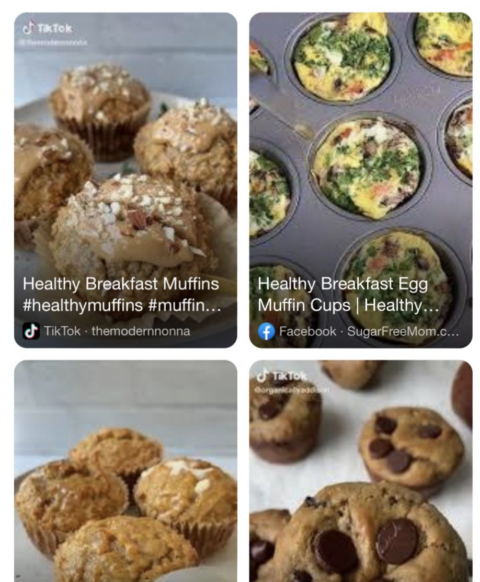If you want your brand to succeed in 2023, it’s time to step up your social media strategy.
As people increasingly turn to the search bar on social media platforms, optimizing your content for platform search algorithms is more important than ever.
And with Google’s new Short Video Result Type, it’s also a great time to prioritize short-form video content, which goes hand-in-hand with current social media trends.
On November 30, I moderated a webinar with Rachel Schardt, SEO Success Manager at Conductor. Schardt demonstrated how you could take full advantage of social media next year and boost your brand’s organic discoverability and reach.
Here is a summary of the webinar. To access the entire presentation, complete the form.
Why Optimize For Social Media Search?
More and more people are using social media as a search engine. In fact,
- 59% of the world’s population uses social media for an average of 2 hours and 30 minutes daily.
- YouTube is the second most popular search engine next to Google.
- 40% of Gen-Z prefers searching on TikTok or Instagram over Google.
- Facebook averages over 2 billion searches a day.
- 83% of Instagram users say it helps them discover new products and services.
Social search can increase your social media reach and website traffic because these platforms are keeping users on the platform longer.
[Find out how this drives traffic to your website] Instantly access the webinar →
Social Media Optimization Best Practices
It’s essential to consider the algorithm of each platform when optimizing. So let’s look at each.
How To Optimize For Facebook’s Algorithm
Facebook has a staggering 2 billion searches a day, so optimize your profile and content by:
- Using keywords from your Business Category (when available) & Business Description in your profile.
- Using keywords in the caption of your content.
- Choosing an image/video that is reflective of the keyword.
- Remembering that hashtags are not a search ranking factor (except for reels).
- Using video content, since that typically performs better in reach, engagement, and search.
[See examples] Instantly access the webinar →
How To Optimize For Instagram’s Algorithm
Instagram allows users to discover new products and services, so optimize your profile and content accordingly by using:
- Keywords in the name line – 64 character limit.
- Keywords in your bio.
- Keywords in the caption, hashtags, and alt-text.
- 30 hashtags (if there are 30 relevant ones), a mix of popular & niche.
- Carousels and reels for reach.
[See an example] Instantly access the webinar →
How To Optimize For TikTok’s Algorithm
You can optimize your profile and content for Gen-Z, who prefer to search on TikTok & Instagram over Google, by using:
- Keywords in the name line (30-character limit).
- Keywords in the caption, hashtags, and in the actual video (text/sound).
- Three to five hashtags, a mix of trending/popular tags & more niche ones.
[See examples] Instantly access the webinar →
How To Optimize For YouTube’s Algorithm
YouTube, the second most popular search engine after Google, has more ways to be optimized than the other platforms.
- Title: Use keywords as close to the beginning as possible (46 characters ideal) for titles.
- Description: Above the fold, use a brief description and primary keyword. Below the fold, use secondary keywords and a call to action.
- Tags: Include five to eight keywords.
- Hashtags: Use three hashtags focused on keywords.
- File Name: Name your video file your YouTube Video Title.
- Audio: Use keywords.
- Closed Captioning: Enable this and auto-generate transcripts.
- Ad Category: Include a category.
It’s worth noting, however, that Short Video Result Types are starting to appear across social platforms in Google search results.
These are Instagram reels, Facebook reels, TikTok videos, and YouTube shorts.
 Screenshot from Google, November 2022
Screenshot from Google, November 2022[Discover how Google is ranking short-form video] Instantly access the webinar →
Now that you know how to optimize per platform, it’s time to create your social media keyword strategy.
How To Create Your Social Media Keyword Strategy
When choosing your social media keywords, it’s essential to:
- Maximize Your Content. Use the keywords you’ve found for your site. You can refine these keywords by using things like autosuggest on each platform.
- Validate Search Volume. Use SEO tools that provide data on daily social mentions and keywords on video and video carousel result types. Another way to validate search volume on social is the volume of use of a hashtag on Instagram.
- Be Mindful Of Relevance & Intent. Before finalizing your social media keyword strategy, ensure it is relevant to your content and target audience. Make sure the search intent is in line with the type of content you’re creating.
[Boost your organic traffic in 2023] Instantly access the webinar →
Don’t forget to measure engagement followers and website traffic from these optimizations on social and that you’re tracking it accurately.
Know what gets bucketed into referral traffic to show your numbers accurately so you can make more informed marketing decisions.
[Slides] Is Social Media Search The New Google? How To Boost Organic Traffic In 2023
Here’s the presentation:
Join Us For Our Next Webinar!
Beyond ROAS: Aligning Google Ads With Your True Business Objectives
Join Justin Covington, Director of Paid Channels Solutions at iQuanti, as he breaks down the Google Ads changes and show you how to use value-based bidding to drive measurable results.
Image Credits
Featured Image: Paulo Bobita/Search Engine Journal


